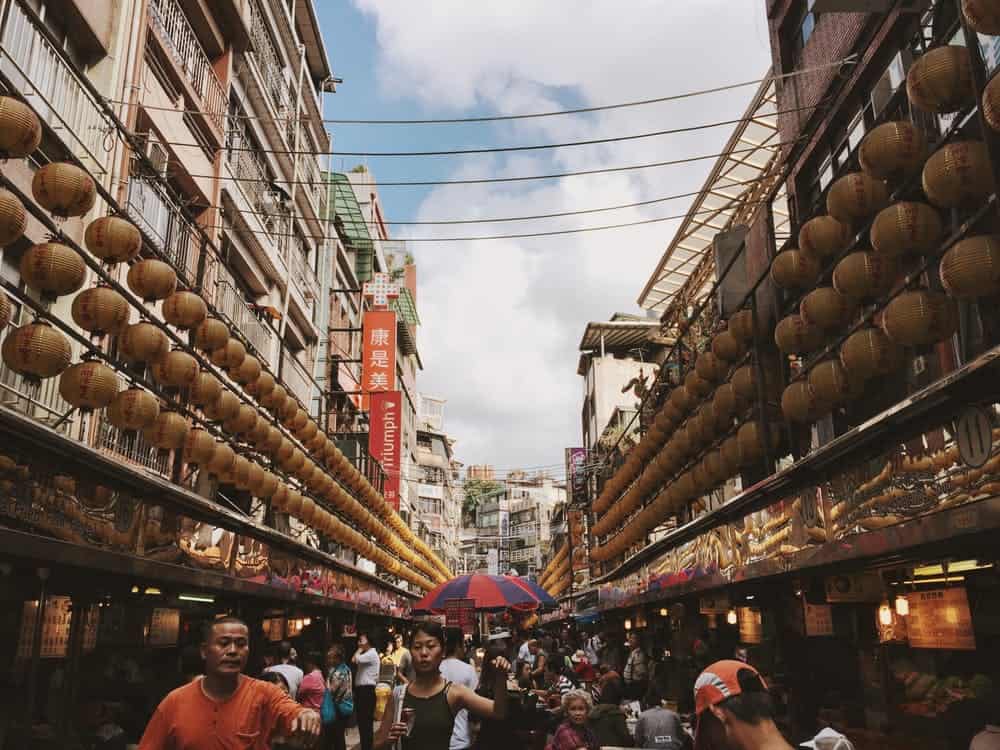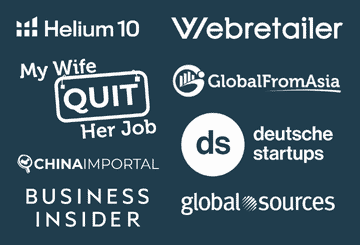In this post I want to talk about how sourcing companies work and when it makes sense to use a sourcing company instead of doing the entire job yourself.
Back in the days when I worked for a Buying Office/Sourcing Company in Hong Kong I was travelling 10 days of the month scouting new products for customers in factories in China.
As a Sourcing Company we provided every service the customer needed to import so he didn’t need to handle everything himself. We earned a small commission (non-profit wholly owned buying office) on our orders and made life for our buyers a lot easier.
That was back in 2013. Today (2021) things are a little different and sourcing companies have adapted. Here’s how most sourcing companies work and how they charge. At the end of this post you’ll also find a list of sourcing companies in China/Hong Kong.

Disclaimer: Some of the products may contain an affiliate link and we may make a commission if you click on it at no additional costs to you.
1) UP-FRONT FLAT FEE:
Basically you pay a fixed up-front fee that is agreed on at the start of the project. The company starts sourcing and you’ll get a report after a couple of days. Usually complete with 1-3 supplier recommendations and which one would work best for you; an Excel file containing supplier contact details, product weight, measurements, description etc. At this point you could possibly hire the sourcing company for further steps (what that entails explained below) such as a full sourcing package or take it from here. No further costs are involved.
2) UP-FRONT FEE & COMMISSION:
Some companies charge you an up front fee (usually fixed) and if you decide to order that product from the choosen supplier the sourcing company also gets a commission. This is a rather unpopular model as the sourcing company even gets money even if they don’t do anything further anymore.
3) COMMISSION ONLY (WITH CONTRACTS, USUALLY BIG SOURCING OFFICES WITH MONETARY COMMITMENT EVERY YEAR)
This might be a bit of the older model but not many sourcing companies offer that to a new customers. The sourcing company does all the work in finding a suitable supplier and once the buyer is ready to place an order a commission is agreed upon and paid to the sourcing company once the goods are shipped. Since the sourcing company doesn’t have any guarantee that the buyer places an order this is usually only available for existing clients or buyers who have their own sourcing office in Asia. A good example for this would be the company I worked for many years in Hong Kong (Eurogroup.com.hk).
Eurogroup acted as the sole buying office for 3 big companies (Rewe Germany, bauMax Austria and Coop Switzerland). Every order had a fixed commission (agreed upon every year during a yearly meeting between buyers and sourcing company) and paid out at the end of the year to the sourcing company. Usually these percentages range somewhere in between 4-8%. This might be the best solution for you if you have the need of a contact person any day of the year and have a lot of orders every month (possibly more than 5 containers per month).
4) MAKING MONEY ON THE BACKEND
This is a practice used by MANY chinese sourcing agents or companies without Western management. It was very common in the 90’s and 2000’s but more and more oversears buyers have gotten wind about this (rather unfair) practice.
What basically happens is that the buyer pays an agreed commission or fixed up-front fee to the sourcing company and the sourcing company collected extra commission from the factory itself without the knowledge of the buyer.
Many Chinese sourcing agents have this agreement with factories. If they introduce a buyer to the factory the factory pays a commission to the sourcing agent after the order.
Obviously the sourcing agent doesn’t tell the factory what kind of money they already got from the buyer. It is difficult to figure out if there is money involved in the backend. Usually it is when a sourcing agent offers to work for a very low fee or does not allow you to contact with the factory itself. Beware of these types of sourcing companies.

WHEN TO USE A SOURCING COMPANY?
I find that there are different types of buyers and depending on what type of buyer you are you may want to use a sourcing company or not.
1) Experienced buyers who want to focus on other parts of the business
These type of buyers usually have imported from China for at least 1-2 years and have experience in dealing with Chinese factories and companies. If you are one of these buyers you are very likely stable on your profits and you may want to outsource this task to sourcing companies. Mostly because sourcing in China is a tedious process and can be very time consuming. Especially if you are in a growth phase and you need to focus on non-China activities in your business such as marketing, developing new products or diversifying your business.
2) Tight budget buyers who want to try themselves at the process first
You are very likely at the beginning of your eCommerce or general commerce business and have limited amount to spend on sourcing companies. If you are in this phase I actually do recommend that you do not use sourcing companies as you might want to learn the process first and experience working with Chinese factories first hand. There are a lot of tutorials available on the internet to learn about importing from China (including my blog posts and Import Bible).
Sign up here if you haven’t yet and get my Import Bible (The beginners guide to importing from China) for free: https://importdojo.com/free-ebook/.
Also make sure to read trough my blog posts: https://importdojo.com/blog/
[thrive_leads id=’51377′]
SO WHAT DO SOURCING COMPANIES DO?
Keep in mind sourcing companies do the entire job for you. Just to give you a brief overview of what this entitles and how long this process usually takes:
- Establishing your needs (1-2 days of communication)
- Sourcing compliant suppliers/factories in China based on your requirements (7-10 days for off the rack items)
- Preparing quotation and findings in a summary for you (1 day)
- Order samples and evaluate them for you (5-10 days)
- Negotiate final conditions/pricing (1-2 days)
- Issuing contracts and agreements (1-2 days)
- Placing the order in your name, making sure all terms are met and everything is fixed (2-3 days)
- Arranging production, packaging, labelling, shipment (7-10 days)
- Monitor production period (30-45 days – obviously it doesn’t take 45 days to produce but when you place an order with a factory you need to wait a certain amount of time for all materials to arrive, arrangement of production etc.)
- Arranging inspection (1 day)
- Release production and arrange shipment (1 day)
So we are looking at 87-90 days (roughly always 3 months) from beginning of the project until shipment.
So if you do not have to monitor the entire process but rather want to focus on developing and growing your business it makes a lot of sense to hire a sourcing company.
WHEN DOES IT NOT MAKE SENSE TO HIRE A SOURCING COMPANY?
I always recommend first timers to go trough the process at least once. That way you learn a lot about the trade and obstacles a sourcing company has to go trough. Also it will make you simply understand the process better – and appreciate the work a sourcing company is doing for you.

WHAT DO SOURCING COMPANIES NOT DO?
Some sourcing companies may offer these services, some may not:
Inspections – make sure you use a third party inspection company. There are sourcing companies who offer this as an integrated service but I recommend hiring a company (such as QIMA/TUV, SGS etc.) who have many years of experience.
Logistics – some sourcing companies offer this – also here make sure you use a third party inspection company.
Reason why I say use a third party for inspections and logistics is that your sourcing partner is probably not the strongest in that field. Meaning their prices are higher and they are less experienced. You might argue that you want an all-in solution with one company and don’t mind but I’ve seen my fair share of problems with these all-in one companies.
Just think of it this way: if you want to have a great pizza you aren’t going to the Greek around the corner because they also serve Pizza. You’ll want to go to the best Italian in town (if they are affordable). And if the Italian serves a Greek dish it’s probably not the best Greek dish you can get…. I think you get my point.
WHAT CAN YOU EXPECT FROM A SOURCING COMPANY?
China is not a department store. What I mean by that is that you simply don’t walk into a store (even with experience) and everything goes smooth. There are a lot of obstacles that can come along the way. Governmental Inspections, Chinese New Year holidays, unexpected delays on raw materials, unclear communication from the buyers side delaying things and so much more.
Obviously most sourcing companies work in YOUR interest, not in the factories interest. However if the buyer is in-experienced with doing business in China some situations can become difficult in the buyers eye. Therefore it is important to understand all facets of doing business with Chinese companies. Again, I recommend to have gone trough the process at least once and ready up on my blog posts.
LIST OF SOURCING COMPANIES:
If you are looking for sourcing companies, Niechedropshipping has included a list of great sourcing companies here.
CONCLUSION:
I think it generally makes sense in any business to outsource those tasks that you aren’t good with (or have no time for). Just as I outsource certain tasks in my business. Do your research on sourcing companies and determine based on the following factors of the sourcing company:
- Experience
- Reputation
- Pricing
Pricing is usually my last priority in all tasks I outsource because I rather pay a little more but have less headache afterwards.
I hope this gave you a bit of an overview of what sourcing companies do and how they can help you.

